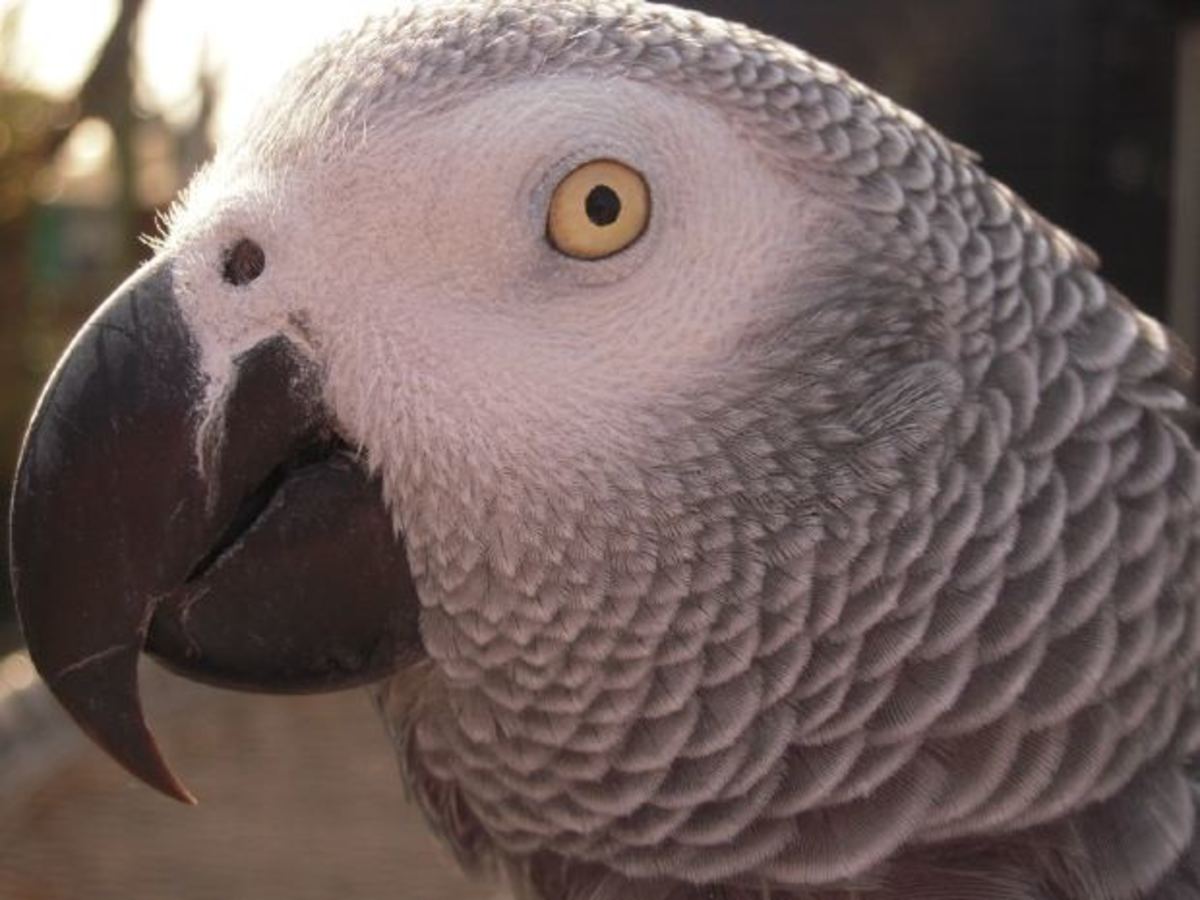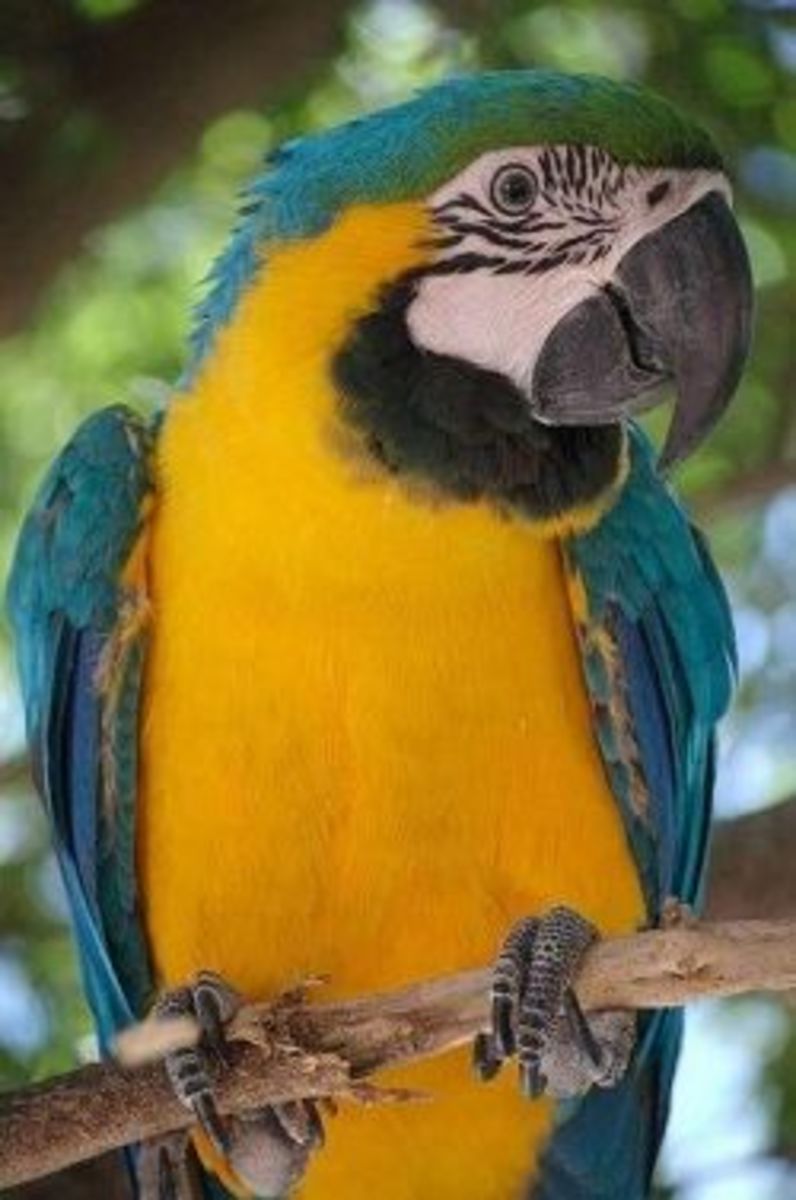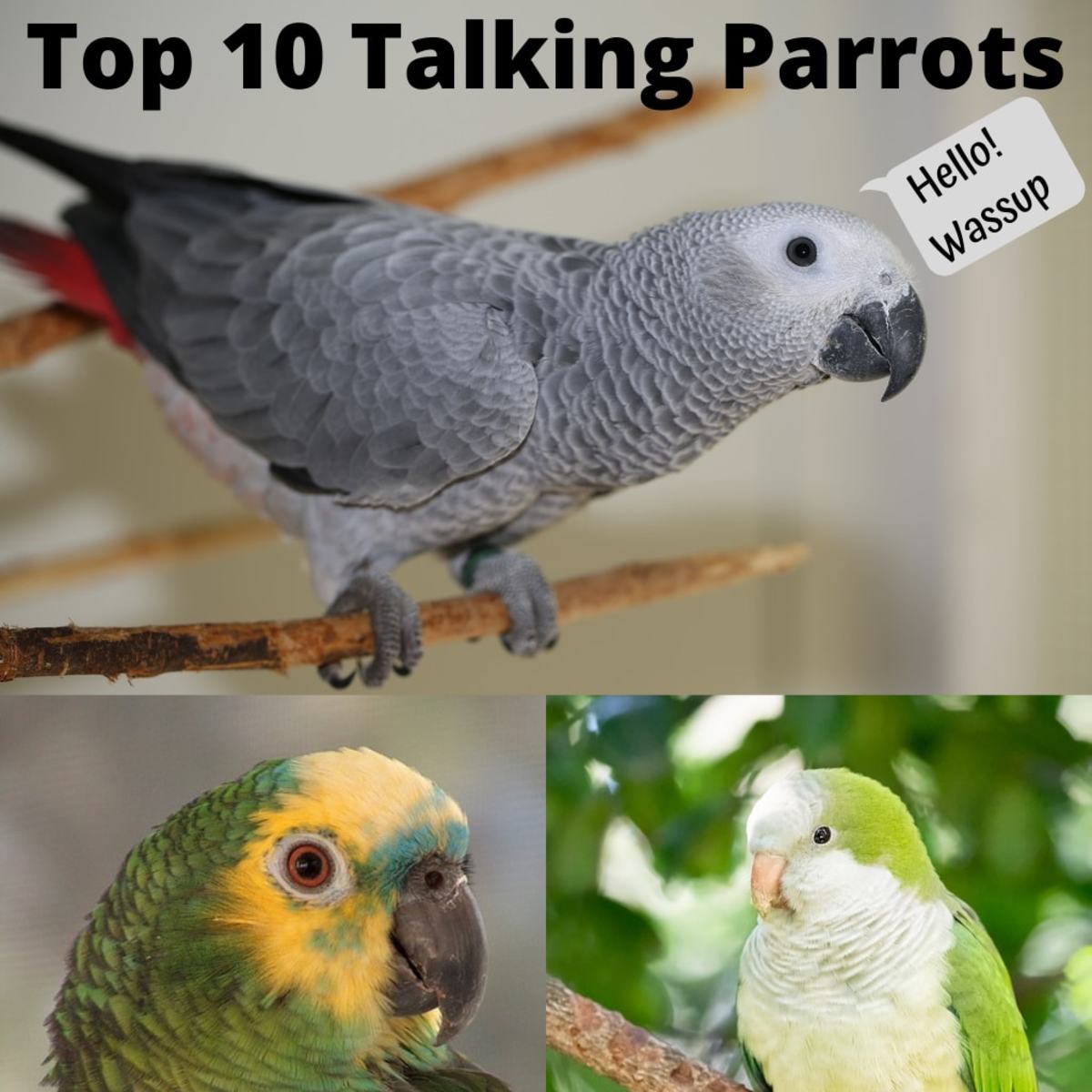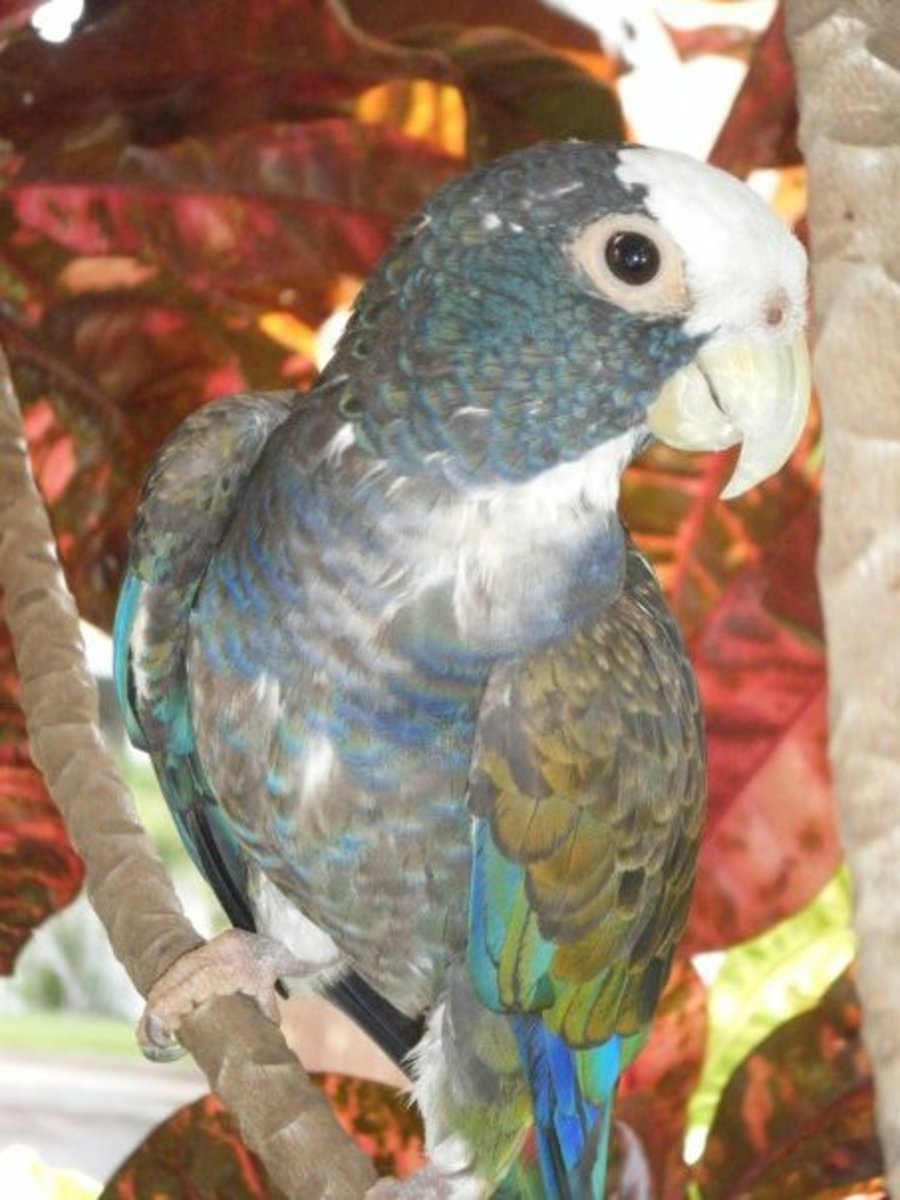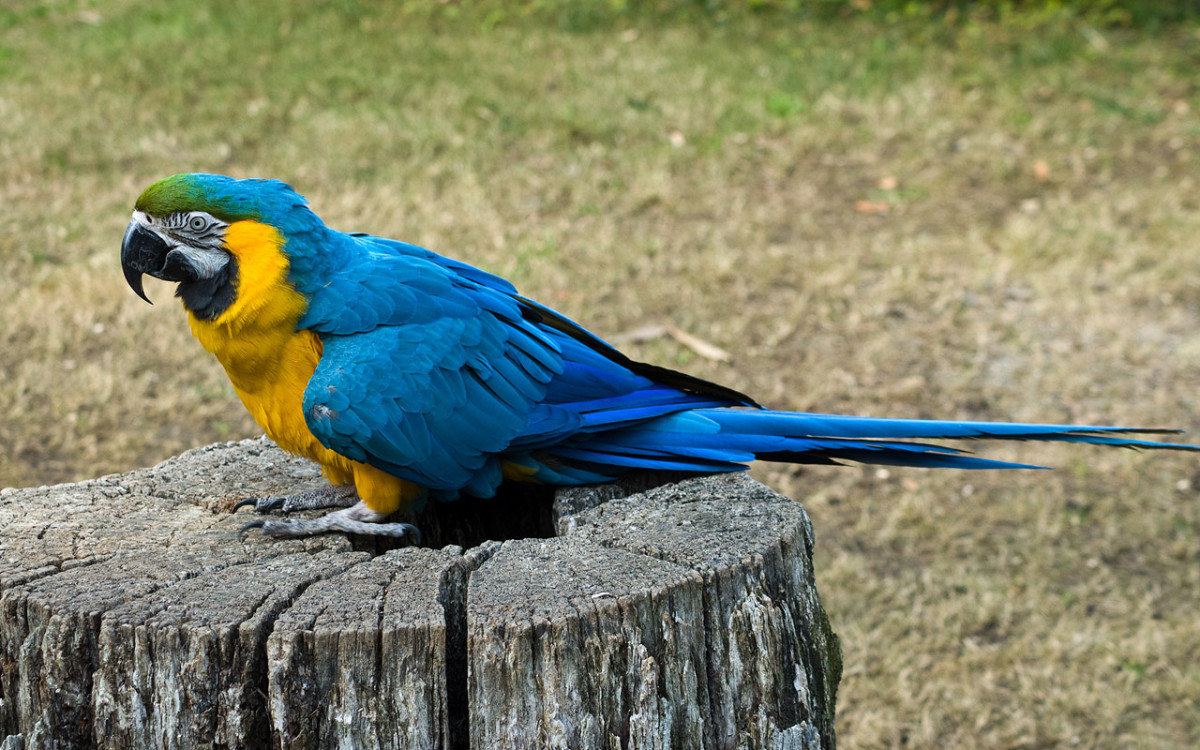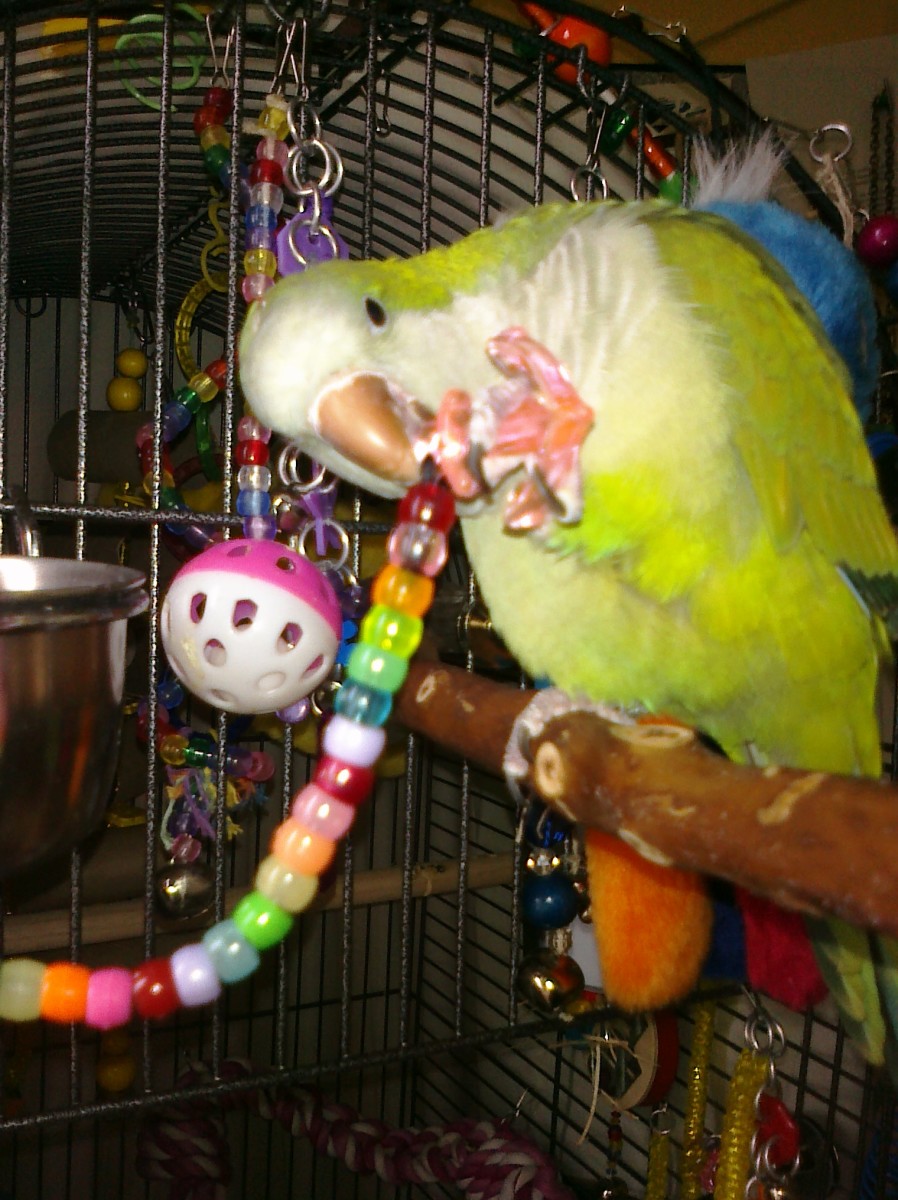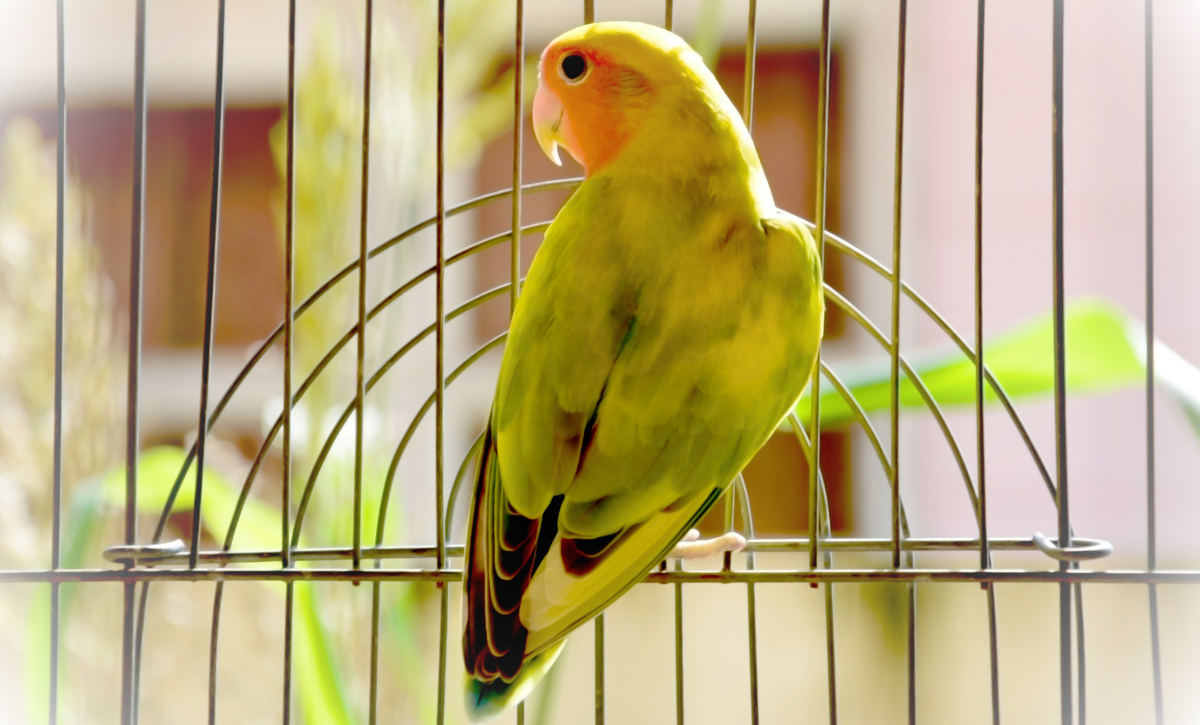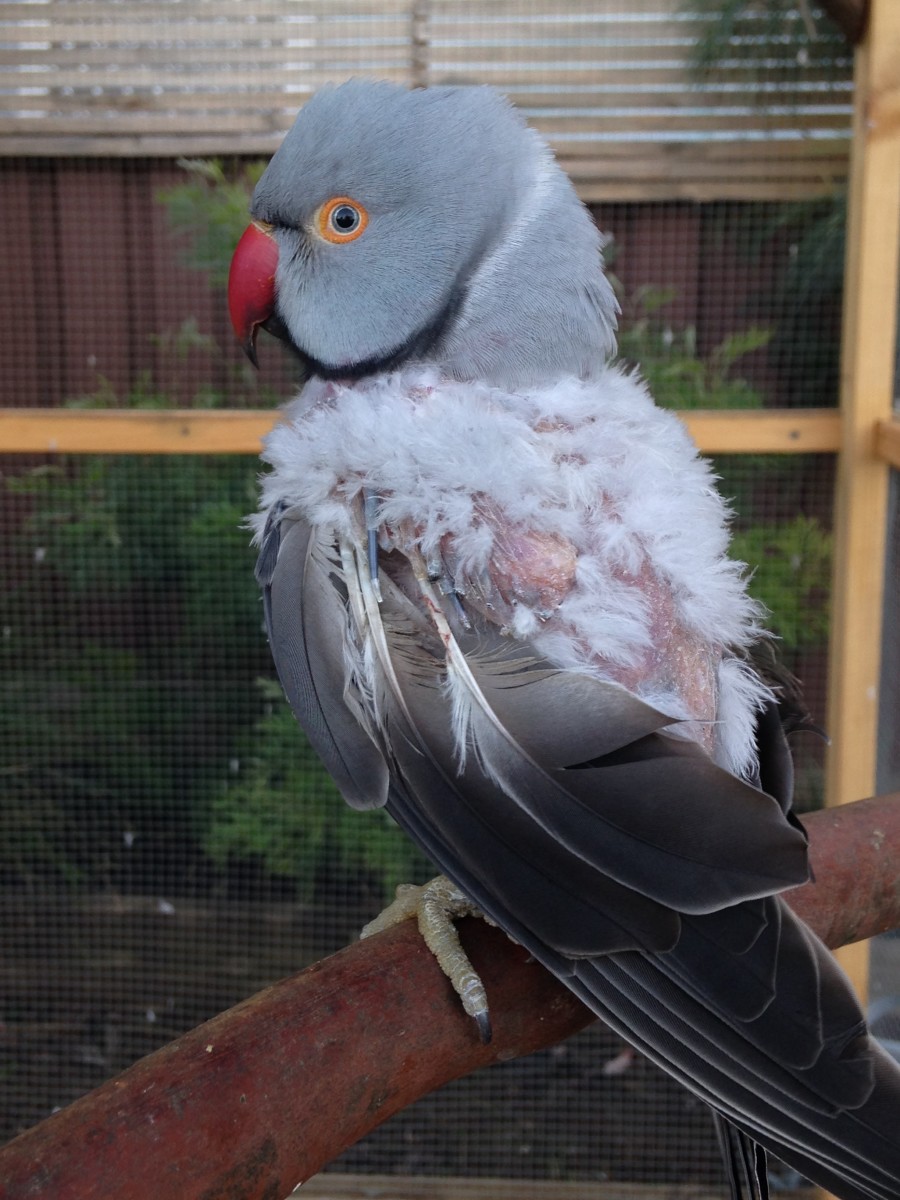Parrots
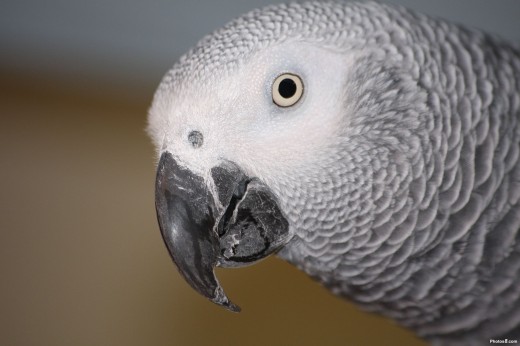
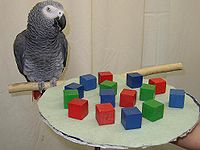
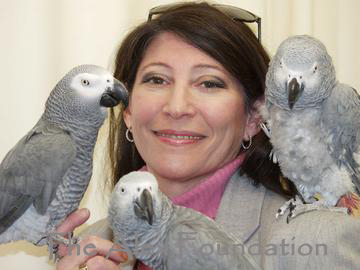
My friend has an African Grey parrot called Simba who has completely taken over the family. He can talk, show emotion such as jealousy, love and frustration, he understands commands and is very amusing; he is able to sing, dance and make choices about what he eats and even lets her know when he wants a hug! Simba's intelligence and ability to interact is similar to that of a small child. Simba is now 30 years old and still going strong (they can up to 70years).
He is also naughty; being able to mimic my friends voice exactly, he has been known to confuse the dog by calling out "Jimbo walkies!" whereupon the dog rushes for his lead, his whole body wagging in anticipation as he stands by the door. (Simba's cage door is always open so he has free range of the whole house). He then waddles over to Jimbo, stands in front of him, looks up and repeats "Jimbo Walkies !" It's hilarious to watch this large white Lab, looking down at Simba (who stands maybe 8" tall) with his head cocked to this side then that, forehead furrowed and completely confused. Poor Jimbo gets fooled every time! He is clearly very awed by this small creature who sounds like his 'mom.'
I remember watching the National Geographic channel one evening. I picked up a story half way through about a trained parrot. He was quite incredible! This parrot was interacting with his owner; telling her when he was hungry or thirsty, how he was feeling and asking her how she was feeling. Alex, the thirty-year-old African Grey talking parrot, was famous. He was using phrases such as “I wanna go in the car ” or “Where are you going?” He was able to understand and categorize objects and sizes such as bigger and smaller, same or different. He was even able to notice the absence of things. He could explain all his needs and wants by using language. He showed emotion and concern for his owner Dr. Pepperberg. During the show, we watched some of the amazing dialogues with Alex.
It was hard to believe this was a bird and not a small person! He was able to combine words; he could identify, request, refuse, and categorize over 100 different items. Alex exhibited the emotional equivalent of a 2-year-old child, and the intellect of a 5-year-old. Dr. Pepperberg's research broke the notion that parrots are only capable of mimicry. She grew to love this parrot dearly and wrote a book about him.
Dr. Pepperberg first became interested in communication with other species whilst she studied at Harvard, working on a doctoral thesis in theoretical chemistry. She watched Nova programs on signing chimps, dolphin communication, and most notably, on why birds sing. Shortly after, she decided to conduct research on an African Grey parrot. She chose a random bird from a pet store to ensure there was no selective breeding. Alex was one year old. She made up the name from the acronym “Avian Learning EXperiment."Alex lived nearly all his life in Pepperberg’s lab with other parrots. The birds spent twelve hours a day, when they weren’t sleeping at night, with at least one human companion working with them.
Apparently, Alex was wonderful to work with. When offered a treat, he would accept it with a “Grrrrrrreat!”, and then, “Yummy!” He called for “Banari,” a combination of “banana” and “cherry” (capable of making up combination words on his own). Alex was able to transfer his concept of “zero” from the same-different study to numbers. “Zero” is considered a very sophisticated concept even for humans. She would show him a picture of three apples and Alex would say ‘three apples ’ If he was asked how many oranges there were, Alex would reply ‘none.’ He got this right with multiple objects. If she held up a square and asked, “What shape,” Alex would respond, “Corners.” He could identify colors and he could count the number of objects on a tray. Alex even told the other parrots to “talk better” if they mumbled!
Sadly Alex died in 2007 at age 31, which is young for a parrot. Pepperberg was heartbroken and quoted as saying “It is devastating to lose an individual you’ve worked with pretty much every day for 30 years.".
When she left the lab the night before Alex died, his last words to her were: “You be good, see you tomorrow. I love you.”

